What if instead of sending traffic to the moon and back with every click, all you needed to work safely was built into your browser.

A modern, secure, and productive workspace for BPOs and the companies that use them.

Business process outsourcers (BPOs) work in a demanding industry. These organizations often operate large distributed systems, manage a global remote workforce across a wide range of geographies, and navigate stringent data protection requirements and regulatory needs for their clients. This must be accomplished while ensuring a delightful customer experience for their clients.
On the other side of the coin, organizations utilizing BPOs for functions, such as call centers, finance, sales, and marketing face additional challenges. These organizations gain scale by using the BPO, but they often have to figure out how to grant BPO employees access to their own application resources in a low cost, low risk way.
The Enterprise Browser creates the ideal workspace for BPOs and their staff as well as organizations that rely on BPOs for outsourcing, giving employees a simple browser-based experience for application delivery that improves productivity and user experience. It provides complete control, visibility, and governance over applications and data, allowing both BPOs and the companies that use them secure application access.
Island enforces policy at the point of user access. Enable workers to access data regardless of where they are located. Enforce policy based on geolocation, role, and user identity.
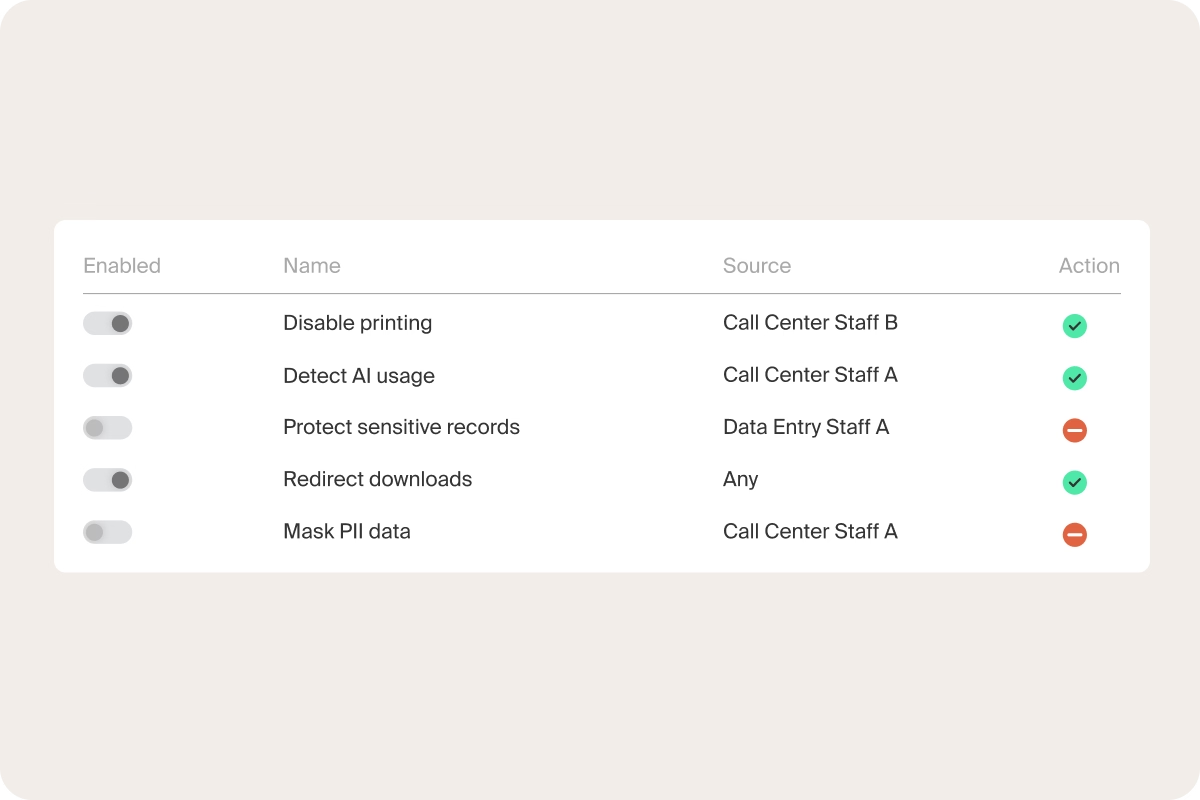
BPOs often have to use their client’s systems, relying on complex processes and custom integrations to make it possible. Island applies consistent role-based access application controls and data loss prevention policies across any application.
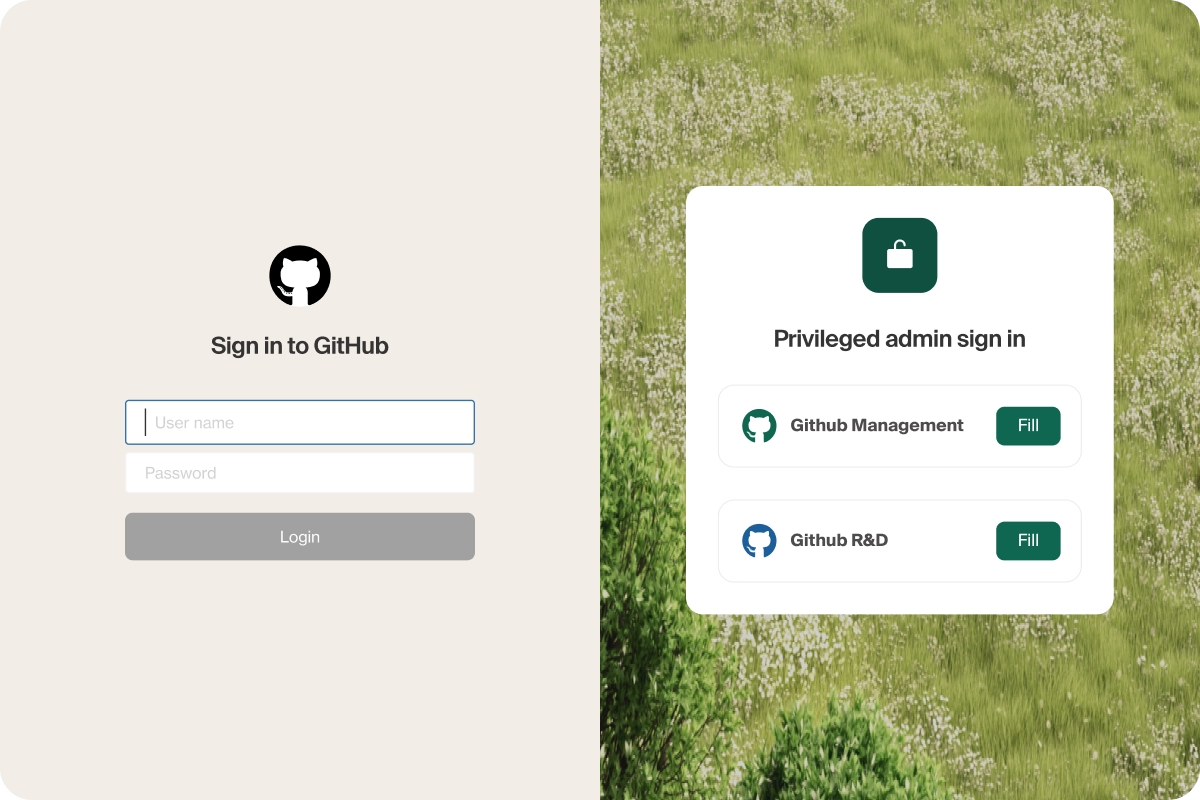
Island can ensure both the BPO and the client can safely navigate the complexities of diverse device usage. Often clients will ship devices to their BPOs to use for application access. With the Enterprise Browser, client organizations can empower the BPO to use their own devices to reduce costs and friction. This creates a much easier onboarding process for all while improving the security of BPO access.
Using the most familiar tool format — a browser — Island can deliver many of the same advantages as Virtual Desktop Infrastructure without the large infrastructure requirements and associated costs. Island has unique data protections, access controls, and a robust security policy framework that can help achieve Zero Trust, NIST 800-53, controlled unclassified information (CUI) management, and other department and agency requirements.
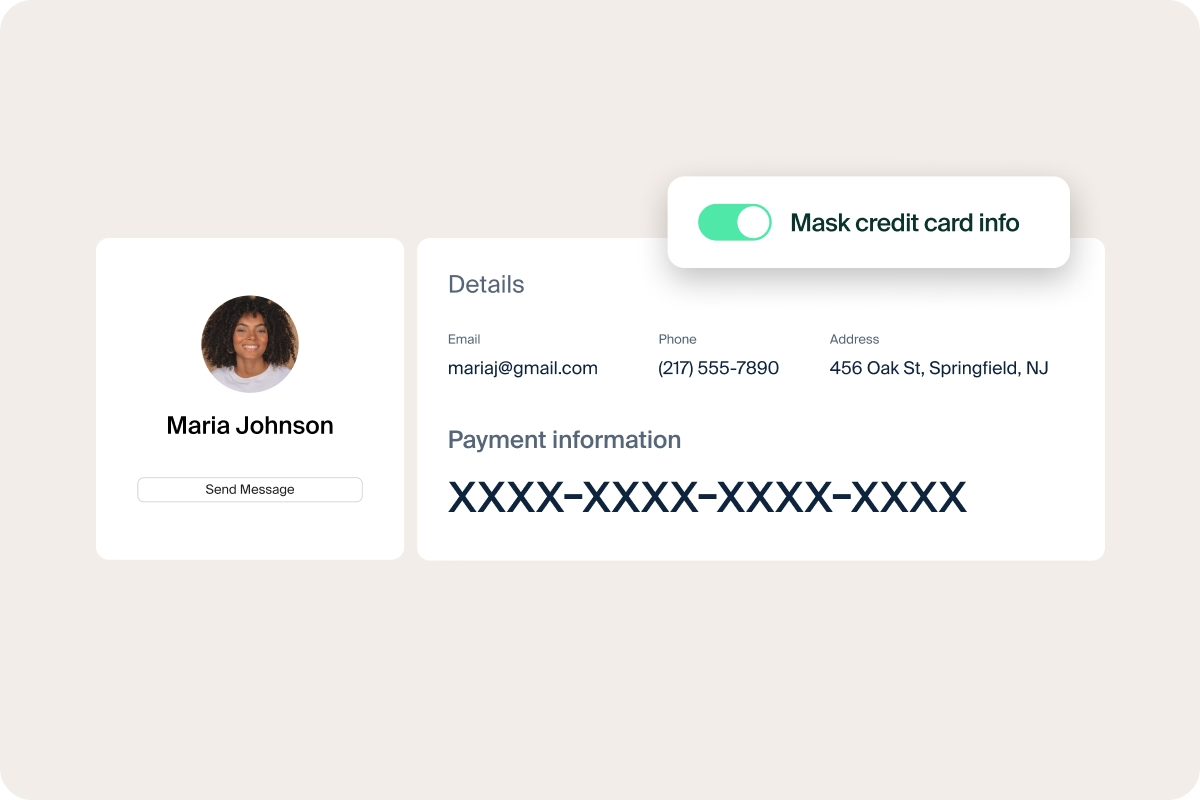
Organizations can create automated workflows, which allow them to inject their own business logic into any website to improve end user productivity. Examples include automating the movement of data from one application to another where users would otherwise have to manually copy and paste data.
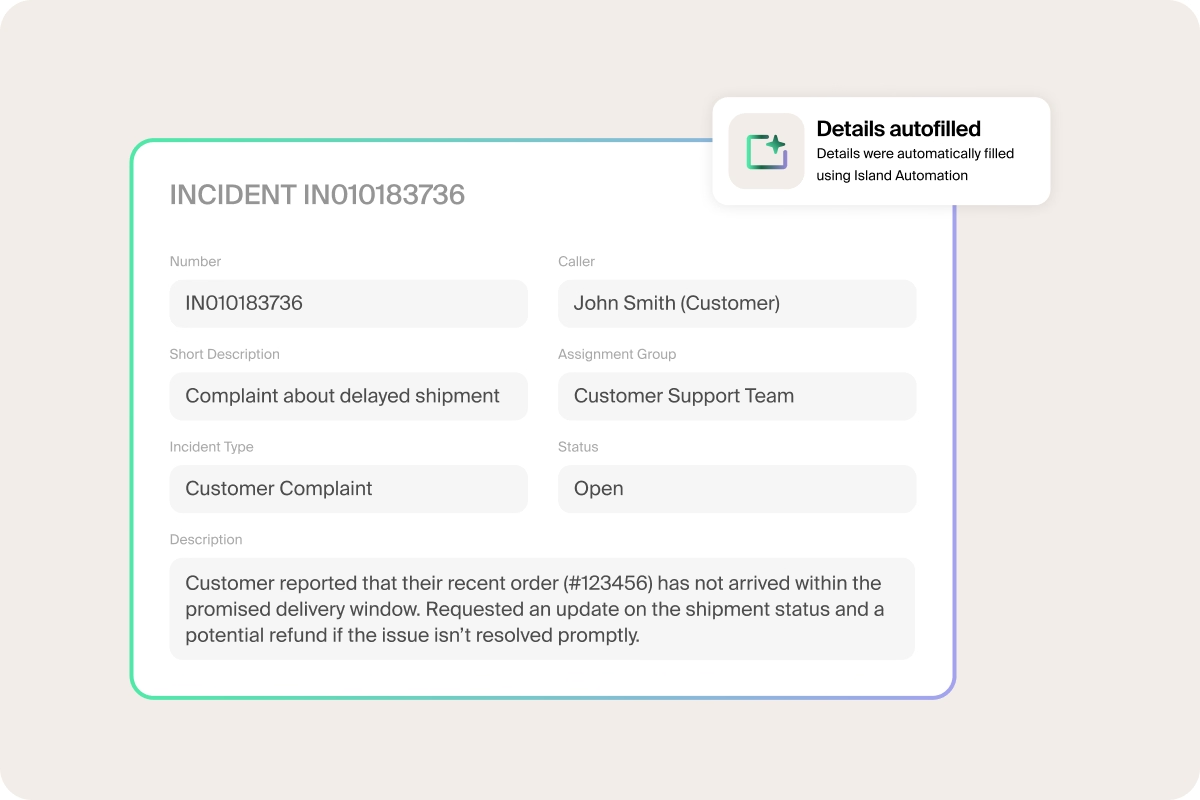
Last-mile controls, data protections, application boundaries, and access controls can be used to meet regulatory, data privacy, and customer requirements. Prevent customer data from leaking onto the user’s device, to unapproved apps, or from moving between customer environments.
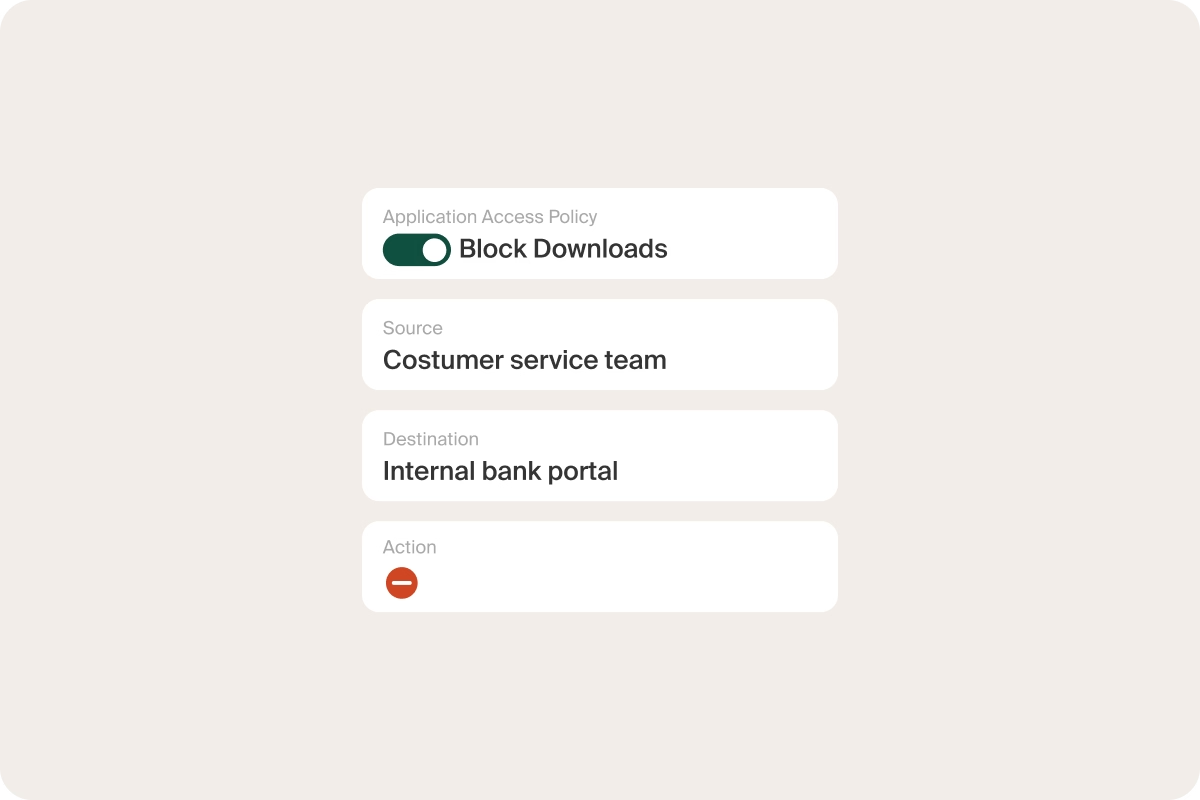
Yes, enterprise browsers are effective for Business Process Outsourcing (BPO) companies operating with BYOD or remote setups. They provide centralized security, granular control over data access, and simplified management, enhancing compliance and potentially reducing IT infrastructure costs for distributed workforces.
Enterprise browsers aim to reduce vendor lock-in by offering greater control and seamless integration with existing IT infrastructure. This approach enhances operational flexibility for BPO companies by simplifying IT management and enabling adaptable policy enforcement.
Yes, enterprise browsers significantly reduce setup complexity by centralizing IT administration and policy management for web and application access without relying on complex virtualization infrastructure. Employee and client onboarding is quick, seamless, and easy. This streamlining enables quicker provisioning of secure, pre-configured environments, directly decreasing provider ramp-up time for BPO operations.
BPOs can securely access enterprise systems via browsers by deploying enterprise browsers that embed robust security features and policy enforcement directly within the browsing environment. These solutions enable control over user activities in both web and desktop apps, protect sensitive data wherever it resides, ensure segmentation between different client application and resources, and streamline compliance without relying on complex, separate virtualization infrastructure.
Enterprise browsers mitigate data leakage in BPO environments by enforcing data loss prevention policies directly within the browser and within desktop applications. These policies control sensitive actions like copy/paste, downloads, and screenshots, ensuring data remains within authorized boundaries and preventing unauthorized exfiltration.
An enterprise browser integrates security, access management, and productivity tools directly within the web browser, offering a more agile and cost-efficient alternative for BPO companies. Unlike DaaS, which delivers entire virtual desktop environments, this approach utilizes the end user device, which can reduce infrastructure complexity, improve user experience, and mitigate concerns like recurring costs and performance latency.
DaaS and virtual desktop infrastructure often has a complicated end user experience, making it difficult for users to find and use the tools they need to do their jobs. Implementing DaaS can lead to higher recurring costs over time and create vendor lock-in, making it difficult to switch providers.
BPO companies should evaluate an enterprise browser's robust security features, access controls, and data protections to meet customer and regulatory requirements, and seamless integration with existing IT infrastructure. Enterprise browsers can also reduce operational costs, streamline IT management, and enhance user productivity.
An enterprise browser is designed to integrate seamlessly into BPO agents' existing workflows, rather than disrupt them. It can enhance productivity by providing a familiar interface, integrated tools, and a secure yet fluid browsing experience. Robotic Process Automations (RPAs) can be used to provide custom automations or alternatives to complicated API-based integrations with client systems.